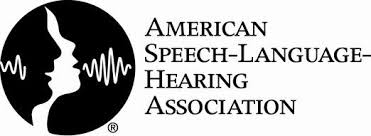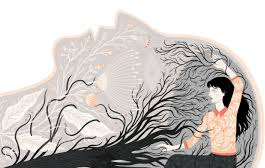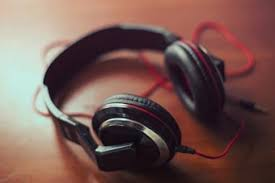|
In This Issue...
- President's Message
- Committee Updates
- ASHA Announcements
- Book Review
- Public Podcasts
- Member Accomplishments
Conference Call for Papers
Conference on Motor Speech
February 21-25, 2018 in Savannah, GA
The call for papers is now open! Submission information is on the website.
Deadline is August 31, 2017.
Conference registration is not yet open but will be posted on the website when it's available.
Sponsorship Opportunities
ANCDS is seeking sponsors for its upcoming annual meeting. Sponsorship opportunities include audio/visual expenses, meals, and fellowships.
Please click the link below to let us know how you would like to help.
I would like to help sponsor this event!
Upcoming Events
Continuing Education Webinar: Principles of Neuroplasticity and Motor Learning: Implications for Neurorehabilitation - Thursday, September 14
Annual Scientific and Business Meeting: Traumatic Brain Injury: From State of the Science to Clinical Application - Wednesday, November 8 in Los Angeles
|
President's Message
Dear Members, I hope you all have been enjoying this fine summer. But for any of you who have been affected by the severe floods, fires, tornadoes, or heat that we've witnessed this summer, please accept my best wishes that you've found the help and support you may have needed to get through the challenges these events have created.
In the last newsletter, I mentioned that ANCDS provides the only opportunity for advanced clinical certification for management of individuals with neurologic communication disorders. In this President's Message, I'd like to provide some additional information about the Academy's program for board certification.
Continue reading here.
Committee Updates
Finance Committee:
Jacqueline Laures-Gore was selected in April as Committee Chair for the new ANCDS Finance Committee. Committee members include Rebecca Shisler Marshall, Melissa Duff, Hsinhuei Sheen Chiou, and Sarah Schellinger. The committee has begun to develop ideas to help ANCDS increase revenue to support its mission and subsequent activities.
Professional Affairs Committee (PAC):
The PAC was restructured in mid-2017, with Heather Clark appointed as the new chair and all new committee members recruited. The PAC is creating an action plan for meeting the charge of initiating and maintaining liaisons with other professional associations. On the horizon for 2018 is increasing the visibility of ANCDS at scientific meetings (e.g., Clinical Aphasiology Conference, Conference on Motor Speech) and exploring the various ways ANCDS can partner with other associations to forward our respective missions. The PAC is recruiting new members - contact Heather Clark if you are interested.
See Communications Committee and Education and Standards Committee updates here.

ASHA Announcements
Stay in the Loop!
Subscribe to the ASHA Headlines e-mail list and keep up to date on the latest news from your association! Postings to ASHA Headlines include topics such as:
- Updates on government relations (including Your 60-Second Advocacy Update), public relations, audiology and SLP practices issues and activities;
- CEO Updates;
- Periodic summaries of various ASHA committee, board and council meetings;
- Action alerts for government relations and reminders about upcoming ASHA elections.
- To subscribe to ASHA Headlines, please log into your My Account page and select the link for "Manage Your ASHA E-newsletter Subscriptions." If you do not have an ASHA account, please use this subscription form.
ASHA-Sponsored Opportunities:
The following are upcoming deadlines for ASHA research career development opportunities. Please visit http://asha.org/research/ for eligibility requirements and other details.
Additional opportunities are available to attendees of the ASHA Convention, which will take place November 9-11 in Los Angeles. Events include several research career development sessions, the Research Roundtables, and the Research Symposium, which this year will focus on Autism. Visit http://www. asha.org/Research/Convention-Highlights/ for details.
ASHA's Clinicians and Researchers Collaborating (CLARC) online network encourages research partnerships between clinicians and researchers. Enroll today! See http://www.asha.org/ academic/CLARC/ for details.

Book Review: Tell Me Everything You Don't Remember
Christine Hyung-Oak Lee was born in 1973 in Queens, New York. Her parents had emigrated from South Korea to the United States to pursue professional careers. While her mother and father envisioned Lee would grow up to contribute to the medical world, the independently-minded Lee graduated with an English degree to become a writer. Then, on December 31, 2006, at age 33, Lee woke up with an excruciating headache. She suddenly had difficulty forming sentences, steadying her balance, and seeing the world in its true form. She suffered a thalamic stroke. Just over 10 years later, she published the powerful and honest account of the events leading up to her stroke, and how her identity changed and continued to shift as she confronts the challenges of her new life.
Continue reading here.

Public Podcasts
Two new episodes of the ANCDS podcast have been published. In Episode 9, Michael Biel talks with Dr. Julie Wambaugh about issues related to the research and treatment of apraxia of speech.
In episode 10, Dr. McKay Sohlberg shares her thoughts about approaches to cognitive rehabilitation and client centered care, including the use of Goal Attainment Scale and the development of the eGAS iPad app.
Podcasts may be accessed here.
Member Accomplishments
Blake, M.L. (in press; expected publication date August 15, 2017). The Right Hemisphere and Disorders of Cognition and Communication: Theory and Clinical Practice. San Diego: Plural Publishers. ISBN-13: 978-1-59756-962-0
Britton, D., Hoit, J.D. & Benditt, J.O. (2017). Dysarthria of spinal cord injury (SCI) and its management. Seminars in Speech and Language, Vol 38 (3): 161-172. DOI 10.1055/s-0037-1602835.
Cho, Y. S., Sohlberg, M. M., Albin, R., Diller, L., Horner, R., Rath, J., & Bullis, M. (2017). Training adults with acquired brain injury how to help-seek when wayfinding: an understudied critical life skill. Neuropsychological rehabilitation, 1-18.
Des Roches, C. A., & Kiran, S. (2017). Technology-Based Rehabilitation to Improve Communication after Acquired Brain Injury. Frontiers in Neuroscience, 11, 382.
http://journal. frontiersin.org/article/10.3389/ fnins.2017.00382/full
Duffy, J. R., Hanley, H., Utianski, R., Clark, H., Strand, E., Josephs, K. A., & Whitwell, J. L. (2017). Temporal acoustic measures distinguish primary progressive apraxia of speech from primary progressive aphasia. Brain and language, 168, 84-94.
Heuer, S., Ivanova, M., & Hallowell (2017). More than the verbal stimulus matters: The role of visual attention in language assessment for people with aphasia using multiple-choice image displays. Journal of Speech, Language, and Hearing Research. https://doi.org/10.1044/2017_JSLHR-L-16-0087
Kennedy, M. R. (2017). Coaching College Students with Executive Function Problems. Guilford Press. Dr. Kennedy is Board certified by the Academy of Neurologic Communication Disorders and Sciences (ANCDS), a Fellow of the American Speech-Language-Hearing Association and a recipient of the ANCDS Honors Award.
Narad, M. E., Bedell, G., King, J. A., Johnson, J., Turkstra, L. S., Haarbauer-Krupa, J., & Wade, S. L. (2017). Social Participation and Navigation (SPAN): Description and usability of app-based coaching intervention for adolescents with TBI. Developmental Neurorehabilitation, 1-10.
Patterson, J., Raymer, A., & Cherney, L. (2017). Treatment Intensity in Aphasia Rehabilitation. Aphasia Rehabilitation: Clinical Challenges, 291.
Pitts, L. L., Hurwitz, R., Lee, J. B., Carpenter, J., & Cherney, L. R. (2017). Validity, reliability and sensitivity of the NORLA-6: Naming and oral reading for language in aphasia 6-point scale. International Journal of Speech-Language Pathology, 1-10.
Sutton, M., Dow, M., Dow, D. (2017). Healing the Broken Brain. Hay House Publishing. Co-authored by Megan Sutton, MS, CCC-SLP, this is a book for stroke survivors and their families, but also offers valuable cross-disciplinary information for professionals. It is co-written by a person with aphasia and his family member, and has been featured on TV shows such as The Doctors and Rachael Ray, bringing awareness to aphasia and stroke rehab.
Turkstra, L. S., Clark, A., Burgess, S., Hengst, J. A., Wertheimer, J. C., & Paul, D. (2017). Pragmatic communication abilities in children and adults: implications for rehabilitation professionals. Disability and rehabilitation, 39(18), 1872-1885.
Wallace, S. J., Worrall, L., Rose, T., Le Dorze, G., Cruice, M., Isaksen, J., ... & Gauvreau, C. A. (2017). Which outcomes are most important to people with aphasia and their families? An international nominal group technique study framed within the ICF. Disability and rehabilitation, 39(14), 1364-1379.
Whitwell, J. L., Duffy, J. R., Machulda, M. M., Clark, H. M., Strand, E. A., Senjem, M. L., ... & Josephs, K. A. (2017). Tracking the development of agrammatic aphasia: a tensor-based morphometry study. Cortex, 90, 138-148.
Yuan, W., Treble-Barna, A., Sohlberg, M. M., Harn, B., & Wade, S. L. (2017). Changes in structural connectivity following a cognitive intervention in children with traumatic brain injury: a pilot study. Neurorehabilitation and neural repair, 31(2), 190-201.
|